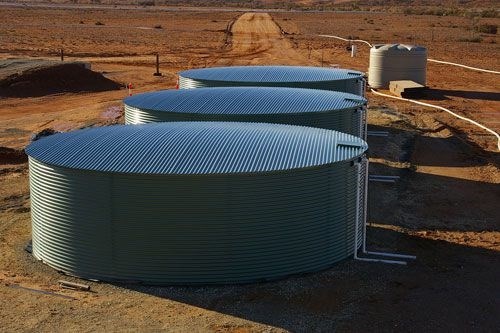Could it be that recycling the water we have is the key to water availability relief for the Cape region - as opposed to imposing increasingly stricter and potentially unviable water usage restrictions as well as costly desalination? Previously, the costs of the infrastructure required have proven prohibitive - but modular plant designs using biological, environmentally friendly treatment methods are changing the game.
A third successive year of the Cape’s worst drought in a century is heading this way and has the region’s reservoirs and dams at record lows. The communities in the region are at severe risk of running out of water altogether while the all-important agricultural sector has been plunged into crisis, affecting the local economy. With the latest ‘Day Zero’ restrictions set to be put into place should dam levels drop below 13.5% allowing residents a mere 25 litres per day for personal use, the situation is now more dire than anyone could have predicted. In addition to this, we need to ask ourselves if we are restricting use to 25 litres per person per day, is this destined to go down the drain and be gone forever? Not if we could recycle this back into clean, safe drinking water.
In the past few months, organisations and businesses in the Cape have started to see the wisdom in making the best of what they have and in holding onto the water supply that is left. This is evident in the number of tenders that we as a firm have received from the Eastern Cape – six in total this year for four hospitals, a health club and a large shopping mall.
Not a new concept
Treating water for reuse is by no means a new concept but previously the methods used and the infrastructure construction needed to implement water recycling have made it a wonderful ‘green’ dream that no-one could financially realise. In addition to this, there has been a stigma around drinking or reusing treated and recycled sewage water. But with residents becoming desperate and local businesses realising just how dependant they are on water to operate, this mindset is changing. Enter the biological, modular wastewater treatment model as phase one and mechanical modular filtration for phase two.
What businesses, schools and hospitals will start to realise as we head into 2018 is that recycling water by means of natural, eco-friendly, biological treatment methods is the best and most cost effective way to ensure water availability and security – and that it is now becoming a matter of life and death. While the concept was unthinkable in a South African setting two years ago, it has been successfully done in numerous countries around the world for years. In 2014, three years into California’s worst drought in over a century, the state’s Orange County Water District (OCWD) established a pioneering wastewater treatment facility that recycles used water – or sewage – and returns it to the drinking supply. The plant’s production expanded from 259 to 370-million litres per day, which is enough for 850,000 people.
Success in Windhoek
Closer to home, Windhoek has been successfully treating wastewater to drinking standards for the past 50 years. Most of the wastewater produced by Windhoek’s 300,000 residents is sent to the Goreangab waste treatment plant – the first stop in the city’s pioneering water recycling system. The systems and technology have more than proven themselves – and far from being repulsed by the idea of drinking recycled sewage water, the residents have no complaints and are in fact proud of what they have achieved with the plant. Many call it Africa’s origin story for water reclamation and potable reclamation, and the plant gets thousands of visitors from around the world who are keen to see where this all started way back in 1968.
Businesses, organisations, residential estates, schools, retirement homes, retail spaces, farms and communities will likely be pursuing the installation of modular, biological wastewater treatment plants in the year ahead because these systems can be implemented very quickly and at an affordable price. In fact, the price comparison between recycling used and sewage water and desalination is staggering. The cost factor is based around the highly concentrated waste (brine) and high electrical energy requirements for desalination that make it more expensive in terms of rand per litre for the final drinkable water.
Addressing social complexity
Dr Anthony Turton, environmental advisor and professor at the Centre for Environmental Management at the University of the Free State put it best when, while talking about water as a business risk, he said: “We’re facing a water crisis of epic proportions. It’s quite possible to recycle your sewage water. But it takes engineering and social complexity.” The engineering complexity has been taken care of thanks to firms around South Africa that have realised that the combination between biological wastewater treatment plants and traditional water treatment plants offers a sustainable engineering solution. The social complexity is now up to the people of the Cape. The choice is simple, try to make the most of what they already have or watch water security go down the drain.







































